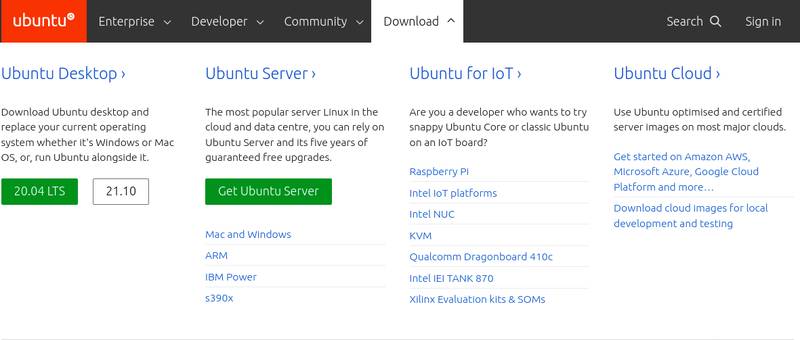Ubuntu Vs Debian: Which one is the better Linux distribution? We explore the confusing issues between the two most popular Linux distros in terms of installation, support, release cycles, desktop environments, gaming, and more.
Ubuntu, one of the most popular Linux distributions, is based on Debian, but the differences between them go far beyond that. If you’re having trouble deciding which one to choose, this guide will provide a detailed comparison between Debian and Ubuntu.
Finding an ISO Image for Installation
Although it may not seem like a critical issue, there is a significant difference between the two in terms of how you can find the ISO file. Ubuntu offers straightforward options to install various editions of Ubuntu, such as Ubuntu Server or Ubuntu Desktop. Still, Debian is a bit more complicated. Some pages have to be browsed to reach your preferred ISO file, and that file may sometimes lack proprietary drivers or desktop environments.
Supported Platforms
Ubuntu is only available on 64-bit architectures, while Debian still supports 32-bit architectures, including older systems such as PowerPCs.
Installation
The Debian’s net installer can be overwhelming as it bombards users with different options that are confusing, even for experienced users, and may seem outdated, failing to identify the installed OS in another partition. In contrast, Ubuntu’s installer is straightforward and can be understood by novice users as quickly as possible. It identifies the OS on another partition, allowing for a dual-boot setup without difficulty.
Release Cycles
Ubuntu has two main releases: LTS and regular releases, while Debian has stable, testing, and unstable releases. Ubuntu’s LTS will receive security patches for five years, and regular releases will only be supported for nine months, while Debian’s stable version, which is widely considered the most stable release, will receive security patches for five years. Unstable releases contain the most recent packages, but they may not be stable enough for daily use. Testing releases, on the other hand, offer stable packages along with emerging ones, making them a sweet spot between stable and unstable releases.
New Packages
Ubuntu packs newer packages than Debian, but Debian is more focused on delivering a more stable experience, meaning Debian may sometimes lag behind Ubuntu in terms of new features.
Desktop Environments
Debian provides users with a wider range of desktop environment choices, such as GNOME, Xfce, KDE, Cinnamon, MATE, and LXDE during installation. Ubuntu does not allow you to select your preferred desktop environment during installation, requiring you to install different spins of the OS first.
Gaming
Ubuntu benefits from new driver support, making it a better choice for new hardware and gaming. Debian, on the other hand, is better for older hardware.
Performance
Performance depends on the installed desktop environment’s resource requirements, but if we compare the two distros on older hardware, Debian will always win. Debian is best suited for servers and workstations that require working with specific apps, whereas Ubuntu is preferred for multimedia and gaming purposes.
In conclusion, both Debian and Ubuntu have their unique strengths and weaknesses, but the ultimate choice between the two will depend on your specific needs.




